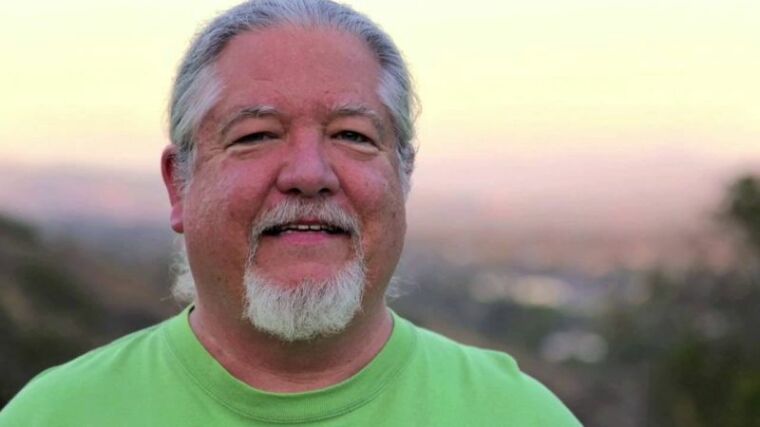Court awards financial settlement to creationist who was fired for challenging evolution

A creationist was awarded a six-digit financial settlement from California State University Northridge (CSUN) after he was allegedly fired for publishing his findings on the discovery of soft tissue on a triceratops horn.
In 2012, Mark Armitage discovered the triceratops horn at a dinosaur dig in Hell Creek Formation, Montana. He found that the horn contained soft fiber and bone tissues that were stretchy, The College Fix reported.
His findings were published in the November 2012 issue of American Laboratory magazine and in the online peer-reviewed journal Acta Histochemica in February 2013.
Armitage's lawsuit alleged that the publication of his findings led to his termination. Some of the professors allegedly went on a "witchhunt" against him and one of them reportedly stormed into his office shouting, "We are not going to tolerate your religion in this department!"
Campus officials told Armitage that his position was only temporary and cited the lack of funding as the reason for his termination.
Armitage's attorney, Alan Reinach, maintained that the creationist was fired because the university did not want to be associated with Armitage's article. He noted that the termination took place just a few weeks after his findings were published.
"To have CSUN associated with the creation heresy — that was the capital offense," Reinach told The College Fix.
Reinach, who is also the executive director of the Church State Council, stated that Armitage's article did not go into detail about the implications of the discovery.
According to Nature, Armitage did not publish his views about the age of the fossil and simply reported that it was found in Hell Creek.
The attorney did not state the exact amount he received but according to The College Fix, he said that it was "a substantial settlement representing about 15 times his annual part-time salary."
CSUN still maintained that Armitage had been fired due to a lack of funding and claimed that it only settled the case to avoid a costly legal battle.
Reinach acknowledged that there was no admission of guilt in the settlement but he believed that the university would not pay a large amount if it did not think it would lose the case.
"The evidence was quite clear," he added. "The stated reasons for saying they fired him were simply not true. There were lies and contradictions abounding from several of the key witnesse," Reinach continued.
He said evidence against the campus officials was seen in an email suggesting that Armitage could be eased out of the job by making his position full-time.
"Not only did it not support the notion that there was budgetary concerns, but in fact suggested to the contrary," said Reinach.
 Christians don't have to affirm transgenderism, but they can’t express that view at work: tribunal
Christians don't have to affirm transgenderism, but they can’t express that view at work: tribunal Archaeology discovery: Medieval Christian prayer beads found on Holy Island
Archaeology discovery: Medieval Christian prayer beads found on Holy Island Presbyterian Church in America votes to leave National Association of Evangelicals
Presbyterian Church in America votes to leave National Association of Evangelicals Over 50 killed in 'vile and satanic' attack at Nigerian church on Pentecost Sunday
Over 50 killed in 'vile and satanic' attack at Nigerian church on Pentecost Sunday Ukrainian Orthodox Church severs ties with Moscow over Patriarch Kirill's support for Putin's war
Ukrainian Orthodox Church severs ties with Moscow over Patriarch Kirill's support for Putin's war Islamic State kills 20 Nigerian Christians as revenge for US airstrike
Islamic State kills 20 Nigerian Christians as revenge for US airstrike Man who served 33 years in prison for murder leads inmates to Christ
Man who served 33 years in prison for murder leads inmates to Christ


 Nigerian student beaten to death, body burned over ‘blasphemous’ WhatsApp message
Nigerian student beaten to death, body burned over ‘blasphemous’ WhatsApp message 'A new low': World reacts after Hong Kong arrests 90-year-old Cardinal Joseph Zen
'A new low': World reacts after Hong Kong arrests 90-year-old Cardinal Joseph Zen Iran sentences Christian man to 10 years in prison for hosting house church worship gathering
Iran sentences Christian man to 10 years in prison for hosting house church worship gathering French Guyana: Pastor shot dead, church set on fire after meeting delegation of Evangelicals
French Guyana: Pastor shot dead, church set on fire after meeting delegation of Evangelicals ‘Talking Jesus’ report finds only 6% of UK adults identify as practicing Christians
‘Talking Jesus’ report finds only 6% of UK adults identify as practicing Christians Mission Eurasia ministry center blown up in Ukraine, hundreds of Bibles destroyed: 'God will provide'
Mission Eurasia ministry center blown up in Ukraine, hundreds of Bibles destroyed: 'God will provide' Church holds service for first time after ISIS desecrated it 8 years ago
Church holds service for first time after ISIS desecrated it 8 years ago Burger King apologizes for 'offensive campaign' using Jesus' words at the Last Supper
Burger King apologizes for 'offensive campaign' using Jesus' words at the Last Supper Uganda: Muslims abduct teacher, burn him inside mosque for praying in Christ’s name
Uganda: Muslims abduct teacher, burn him inside mosque for praying in Christ’s name